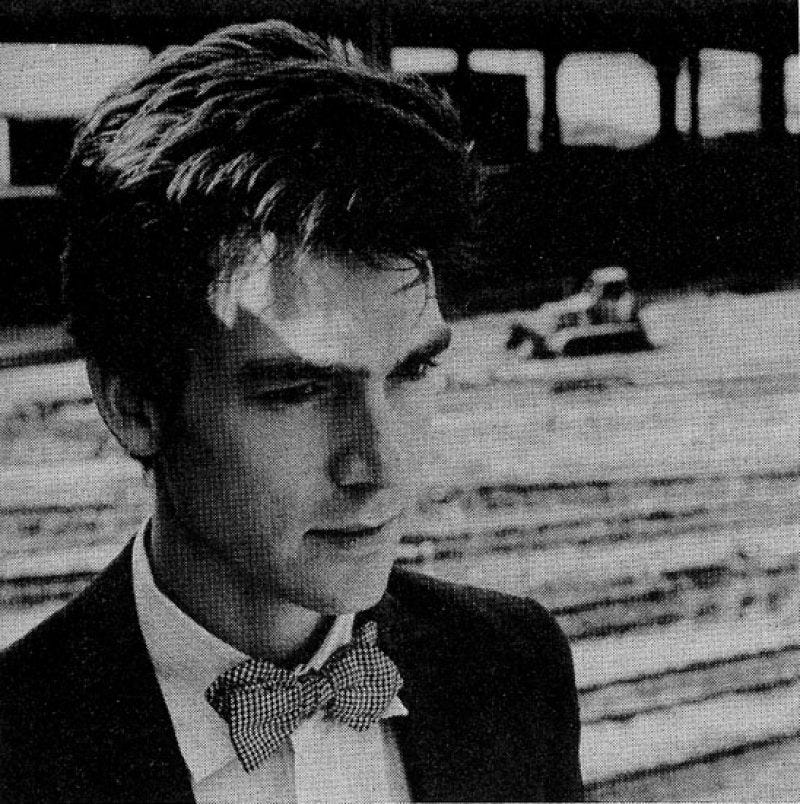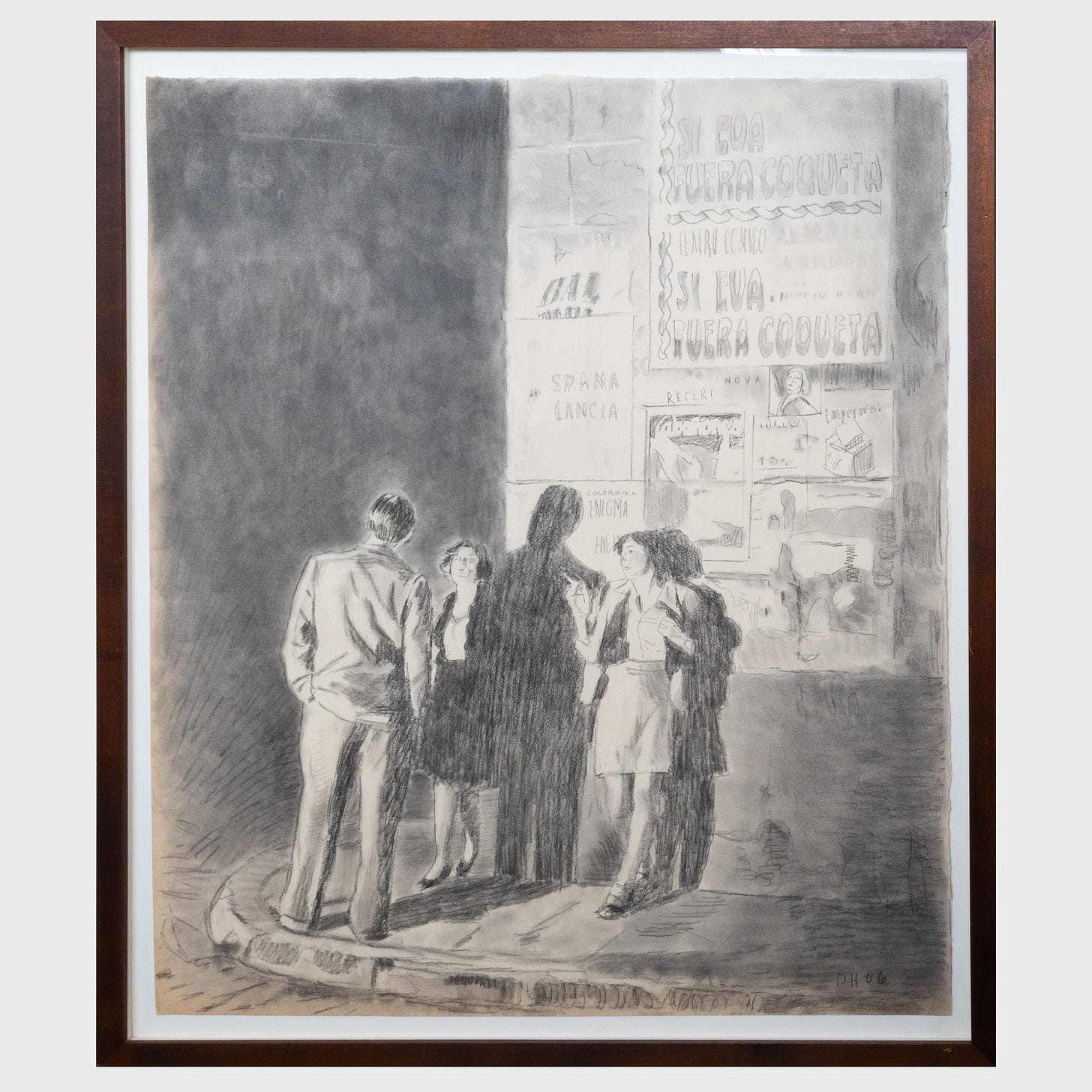The passing of Duncan Hannah shook me in my insides and from the toe to the top of my head. A chain reaction bomb went off in me, and I’m still unsure how I feel. Duncan was a verb to me because I looked forward to having my cup of coffee in the morning and going through Facebook and Instagram to see his posts on a culture that reflects on him but also gives a window or portal opening for others to join in. Without it, it is like I’m given gasoline when I need to drink water. With his death from a heart attack, I feel I lost a connection to his world that means a lot to me. I’m only a few years younger than Duncan, yet I know this sounds odd, but I look at him as my spiritual twin, or at the very least, an imaginary older brother. We are online friends, and I had dinner with him once in New York City. But we had a good and enjoyable back and forth. When you’re a culture nerd and share that love of a specific culture, you can say nouns to each other. “Alain Delon.” “Jean-Luc Godard,” “Jean Seberg,” “The Small Faces,” “Joe Brainard,” the band “Television,” and so forth. By saying those names to each other, we understood the undercurrents of what we were saying to each other. Duncan always shared his love, so one falls in love with him because he won’t let you be stranded in a jungle full of mediocre people and things.
At least three times a day, Duncan would post images of French New Wave or Italian neo-realism films and their stars. Or a focus on London or Paris 1960s music. He shares stuff that has a lot of meaning for me. The one consistent interest he has is narrative or figurative paintings from the past. My knowledge of that type of work is limited, and thanks to Duncan, he exposed me to a new world of painting. Some days I felt like I invented Duncan for the purpose of sharing our common interests. That, I know, sounds egotistical, but I suspect that the both of us are self-centered but in love with the world for what it is and isn’t.
Duncan Hannah is a narrative painter. There is no sign of abstract thought or feeling. Like Edward Hopper, he painted people in private moments but beautiful surroundings. There is something lonely in his work, but it’s not a bad lonely, but one of self-love and sureness of things around you. Drop-dead beautiful girls, vintage and British versions of Penguin book covers, and landscapes that seemed to come from European films. The eros of the woman matches perfectly with the passion of the interiors in the room, the ravishing jalopy on the countryside road, the movie theaters that only have one attendance (more likely just Duncan), and the mood of reflection as time passes.
I fictionalize Duncan, but he truly exists as I have imagined him to be. He was very much a citizen of the New York 1970s/1980s world but also had a dandy’s acceptance of things and the world around him. He didn’t reject anything but just molded it in his fashion. In that sense, he could have been a citizen of any era, decade, or century. The world exists, but he will not change for that milieu. I try to imagine his paintings in a group show, and I’m sure they have been part of such an exhibition, but his images are so distinctive yet familiar, for me, it would be hard to see another artist or painting by its side. Like the man himself, he owns that space when he enters a room. The same goes for his art.
Duncan is a work of art. I’ve read his diary/memoir, 20th Century Boy, and I feel he had to re-invent himself for the new planet called New York City. His taste came on day one back in his hometown of Minneapolis (any city that not only produced Duncan but also Prince and Ralph Meeker has to be God-sent), but he became a master surfer in the landscape of Manhattan punk rock and art. Devastating looks that made people melt, he also had the talent to create paintings that reflect the idea of beauty in everyday, but course, cinematic occurrences. The French New Wave never grows old because it’s always fresh, adventuresome, and, most important, romantic. Neo-Realism is so natural that it becomes an illusion of one’s mood. Duncan had the genius to paint a mood. It is with the image of European cinema, 1960s pop music, or a reflection of beautiful women coming in and out of one’s imagination or life.
Duncan’s death is a downer, but that is not his style. I will dwell on his art and his excellent taste in the visual and aural arts. He’s a giant among the fops, dandies, authors/poets, and romantics. We who live in the shadows look up to him for lightness, taste, and pleasure. We shall meet again.
Duncan Hannah, Europe, 1980, oil on canvas, 30 × 40 inches.
Duncan Hannah, Barcelona










Very heartfelt and good to read, from someone who knew him. He seems like he was an extraordinary person, thank you for sharing your thoughts and experience of Duncan.